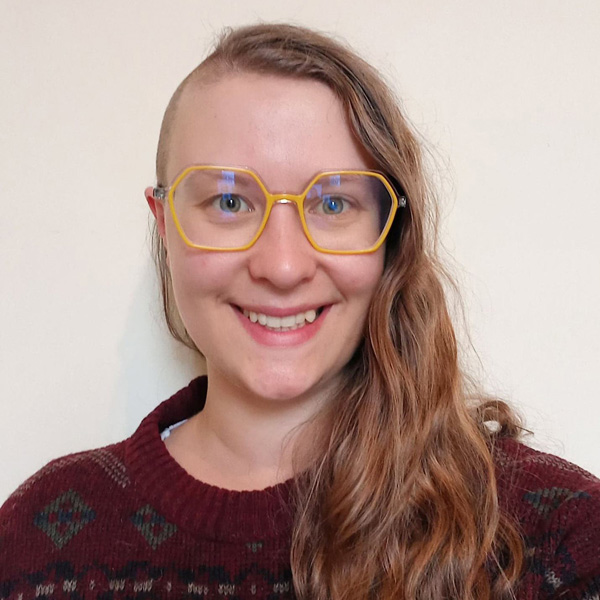We catch up with Flora Miles, a Bristol graduate and newly qualifed Social Worker. She was recently invited to present her dissertation at an event organised by the University of Bath to mark World Social Work Day 2022, celebrating recent developments in practice, activism and research.
Here she talks about the findings of her research along with her experiences of the masters programme.
Undergraduate to postgraduate
After completing my undergraduate degree in Social Anthropology, I wanted to further focus my skills and knowledge towards helping people live fulfilled and empowered lives. I was inspired by social workers who I had encountered through my voluntary experience with charities.
The Masters in Social Work at the University of Bristol offered me a great opportunity, building on my previous studies and some experience which I had gained through volunteering.

Flora Miles
The course was highly rated and I was excited at the opportunity to study in Bristol, which is a city I did not know well before the course and have now become very fond of!
I found the programme varied and engaging. Teaching on a range of topics by faculty members was supplemented by interesting guest lectures. My learning was supported by the knowledgeable and generous members of the service user and carer forum who, through appearances at lectures and in small group workshops, helped us keep service users and carers at the centre of our learning. One of my favourite things about the course was my fellow social work students, who were interesting and friendly people with a breadth of experiences from which I learned a lot and gained treasured friendships.
Work placements…expect the unexpected and respond with creativity!
I undertook my first practice placement with Exeter Homelessness Partnership at CoLab in Exeter, where I live. I loved this experience in the voluntary sector, during which I met some brilliant people and learned so much about creativity and resilience. Unfortunately, the covid pandemic began during the early stages of this placement, leading to a change of plans in which my placement was suspended. Luckily, I gained employment as a project worker with CoLab’s Resilient Women project and as a mental health support worker with Rethink Mental Illness. The university supported me to take learning and reflection opportunities from this employment, which allowed me to progress to the second year of the Masters. This was a very challenging time requiring much flexibility and adaptation from myself and the university, but I am proud to say that we got through it and that I gained valuable experiences. A key takeaway for me was to expect the unexpected and respond with creativity!
My second placement was with Devon County Council, in an adult safeguarding team and a community health and social care team. I was pleased to have this experience in a statutory setting, following my experience in the voluntary sector in first year. This placement was invaluable for my learning regarding the principles and processes at the heart of social work in a local authority, where many social workers are employed. I was helped by committed and supportive social workers as my practice educator and supervisor, who were role models to me. This placement was very useful, especially as I have gone on to work for Devon County Council and therefore continue to directly apply context-specific learning gained while on placement.
I was pleased to be able to use my learning, and the opportunities the Social Work Masters gave me, to influence future social work practice in my own career and beyond.
My dissertation has stuck with me powerfully, and opened up opportunities…
One of my favourite parts of the Social Work Masters was writing a dissertation. It was a real challenge but I grew and learned a lot through it. My dissertation was entitled Mental Capacity in cases of Self-Neglect: A Thematic Analysis of Safeguarding Adults Reviews in England. I became fascinated by topics of mental capacity in adults throughout my studies at Bristol. With the help of my supervisor, I identified that looking at mental capacity in cases of self-neglect would be especially interesting. Having read some Safeguarding Adults Reviews throughout my studies, I wanted to become more familiar with these documents and see what they could teach us.
Key findings
Three key findings emerged from my dissertation:
- People at risk of self-neglect were let down when professionals failed to assess mental capacity
- Safeguarding processes failed to protect people who were found to have capacity to make self-care decisions
- Assessments needed more nuance and scope to account for the complexity of mental capacity
These findings enabled me to make recommendations for social care practitioners, team managers, policy makers, those involved in the commissioning and creation of Safeguarding Adults Reviews, and researchers.
My learning from researching for and writing my dissertation has stuck with my powerfully, and opened up opportunities. One such opportunity was being invited to speak on my findings at an event to celebrate World Social Work Day 2022 organised by the University of Bath. It was a pleasure to speak alongside other practitioners, researchers, and educators.
I am proud of the presentation I gave, having received positive feedback including social work educators asking to share my findings with their students and practitioners telling me that they would use the findings to inform future work with people at risk of self-neglect. I was very pleased to be able to use my learning, and all the opportunities the Social Work Masters gave me, to influence future social work practice in my own career and beyond.
The masters in Social Work at the University of Bristol was challenging, however I am grateful to be the social worker I am today because of it. I would recommend the course to anybody looking to learn a lot, meet passionate people, and take steps into a social work career.
Find out more about our MSc Social Work programme and what makes our joint professional and academic practice award unique.

